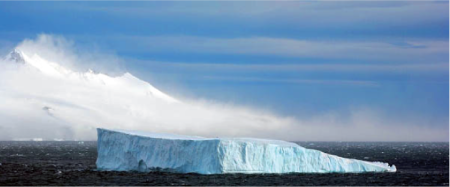| SEARCH |
-

Nov 17, 2015
Reflections on a three-decade legacy
The International Geosphere-Biosphere Programme (IGBP) will come to a close at t...
-
Nov 17, 2015
Use of and access to content on this website
Text and images produced by IGBP in house are free to use with appropriate credi...
-
Nov 12, 2015
Bella Gaia performance and panel discussion to mark IGBP's closure
A musical performance by Bella Gaia will celebrate the achievements and legacy o...
-

Towards Future Earth:
evolution or revolution?
During its three decades of existence, the International Geosphere-Biosphere Pro...
-
A personal note on IGBP and the social sciences
Humans are an integral component of the Earth system as conceptualised by IGBP. João Morais recalls key milestones in IGBP’s engagement with the social sciences and offers some words of advice for Future Earth.
-
IGBP and Earth observation:
a co-evolution
The iconic images of Earth beamed back by the earliest spacecraft helped to galvanise interest in our planet’s environment. The subsequent evolution and development of satellites for Earth observation has been intricately linked with that of IGBP and other global-change research programmes, write Jack Kaye and Cat Downy .
-
Deltas at risk
Around 500 million people worldwide live on deltas, but many of the world's deltas are sinking due ...
-
Climate change: the state of the science
A new data visualization released on the first day of the plenary negotiations at the UNFCCC’s clima...
-
Climate Change:
the State of the Science
Videos now online from the Stockholm public forum to mark the launch of the IPCC's climate report, 2...
Effects of warm water intrusions on populations of macrozooplankton on Georges Bank, Northwest Atlantic
Brown R, Bollens S M, Madin L P and Horgan E F (eds)

As part of the Georges Bank/North West Atlantic GLOBEC (Global Ocean Ecosystems Dynamics) Program, macrozooplankton and micronekton were collected on 30 Broad Scale Survey Cruises between January-June, 1995-1999, using a 10m2 MOCNESS (3mmmesh). The objective of this study is to examine the effects of warm water intrusions on populations of macrozooplankton, namely Salpa spp., Phronima spp., Neomysis americana, and Crangon septemspinosa, on Georges Bank. Salpa spp. and Phronima spp. showed a large degree of horizontal co-occurrence, being found predominantly in Upper Slope/Gulf Stream Water and Georges Bank/Gulf of Maine Water. Abundances of these taxa showed striking interannual variability, and were only abundant on the southern flank and in the Northeast Channel in late spring/early summer of 1995 and 1999, periods during which AVHRR imagery and hydrographic data showed the presence of warm water intrusions. These intrusions seemed to have little effect on the distribution of other macrozooplankton (e.g., N. americana and C. septemspinosa). Warm water intrusions can directly affect Salpa spp. and Phronima spp. populations by advecting them onto Georges Bank, although other, more resident populations, especially those inside the 100m isobath, seem to be little affected by such intrusions.

IGBP closed at the end of 2015. This website is no longer updated.
-

Global Change Magazine No. 84
This final issue of the magazine takes stock of IGBP’s scientific and institutional accomplishments as well as its contributions to policy and capacity building. It features interviews of several past...
-

Global Change Magazine No. 83
This issue features a special section on carbon. You can read about peak greenhouse-gas emissions in China, the mitigation of black carbon emissions and the effect of the 2010-2011 La Niña event on gl...
-
INTERGOVERNMENTAL PANEL ON CLIMATE CHANGE:
How green is my future?
UN panel foresees big growth in renewable energy, but policies will dictate just how big.
-
UK:
'The Anthropocene: a new epoch of geological time?'
Royal Society, Philosphical Transactions A




















